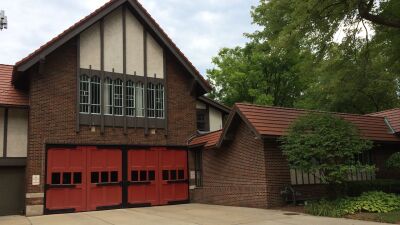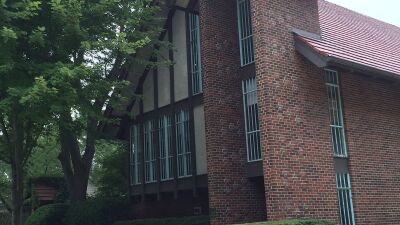HARPER WOODS — The Grosse Pointes-Clinton Refuse Disposal Authority had a relatively small, but unexpected, savings for the 2024 to 2025 fiscal year, which ends June 30.
The GPCRDA had earmarked $16,000 for the fiscal year for maintenance on its 64-acre former incinerator parcel, which is located in Clinton Township, but only spent half of that, resulting in an $8,000 savings. While the property is empty, the GPCRDA has to regularly replace and repair sections of the fence around it because of trespassers. In the past, Clinton Township also cut the grass a couple of times a year, for which the GPCRDA paid a fee. Over the current fiscal year, however, certified public accountant Lynn Gromaski, who handles the finances for the GPCRDA, said they “haven’t received any property maintenance bills” from the township.
There’s a simple explanation for that.
“There was no mowing done,” GPCRDA Board Chair Peter Randazzo said.
During a May 13 GPCRDA Board meeting in Harper Woods, the board voted unanimously in favor of a $1,017,650 budget for the 2025 to 2026 fiscal year, which will start July 1. That’s less than the budget of $1,059,650 that was approved for the prior fiscal year.
“We’re exploring opportunities to lower the cost of our solid waste disposal,” Randazzo said.
The budget includes a contribution of $24,750 for the pension system, which covers employees who used to work at the GPCRDA’s former incinerator in Clinton Township. The incinerator ceased operations in 1999 and was torn down in 2001.
“We don’t know what the pension contributions are going to be,” said Gromaski, noting that they won’t find out until July what, if any, amount they need to put into the pension fund.
The GPCRDA Board set aside $27,100 in the 2024 to 2025 budget for a pension contribution but only had to make a payment of $20,250, realizing a savings of $6,850.
The $3 per ton administrative fee paid by each member community — the five Grosse Pointes and Harper Woods — will remain the same. On July 1, 2017, a higher administrative fee — which rose from $1 per ton of trash to $3 per ton — went into effect for the member communities, because the old fee was no longer covering expenses such as insurance and contributions to the pension system.
“Our $3 administrative fee has been able to maintain our expenses,” Gromaski said.
 Publication select ▼
Publication select ▼

























